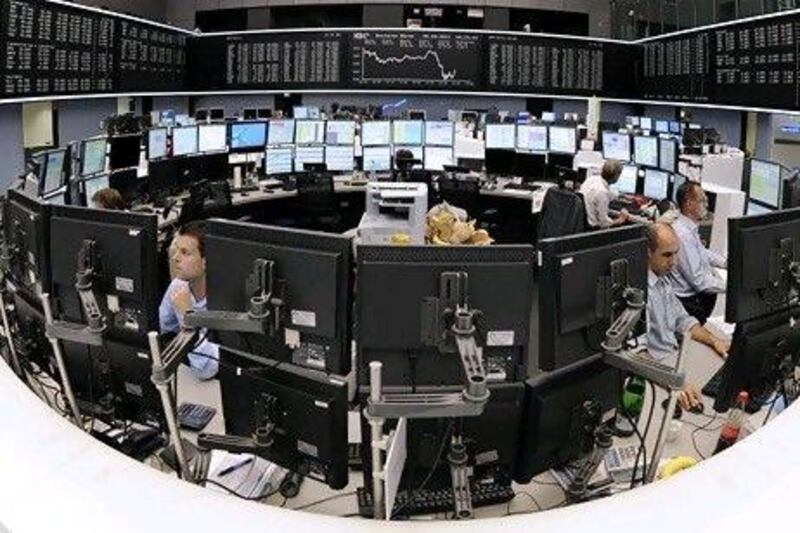If the finance ministers and bank governors meeting in the sunny but volatile Mediterranean port of Marseille had a definitive answer to concerns about the troubled global economy, no one appears to have told the markets.
And no fresh response was evident in the long "agreed terms of reference" issued after long hours of deliberation.
Stock exchanges may not resort to score-settling at gunpoint, as is common among the Marseille underworld, but they do have their own capacity for volatility.
The summit of the G7 world powers - the US, Japan, Canada, Germany, Britain, France and Italy - had begun on Friday against a background of worrying market falls.
And not even buoyant talk of progress towards some sort of international consensus was sufficient to produce any sign of immediate recovery as markets closed for the day.
Stock exchanges in European capitals recorded losses of between 2.4 per cent in London and 4.9 per cent in Milan, reflecting growing pessimism about the ability of even the sharpest economic brains to resolve the crippling Greek budgetary crisis and revive global growth.
Even before the G7 statement appeared late on Friday, it had seemed clear that while there may be common cause on tackling the debt crisis, a truly united front is harder to achieve.
Despite the statement's pledge of "a strong and coordinated international response", competing signals suggested that a concerted strategy still lay out of reach for countries with differing priorities and outlooks.
The British chancellor, George Osborne, who had earlier met the new IMF chief Christine Lagarde, talked of "good progress" towards an international agenda to deal with global debt and support growth.
However, his French counterpart, Francois Baroin, underlined the nuances of approach by saying each country had to respond differently.
Hovering over the summit was the disenchantment of leading German economists with the debt swap strategy adopted by the euro zone to try to ease Greece out of crisis.
Greece's deep-rooted financial woes have so far proved resistant to two attempts to cobble together rescue packages.
On Friday, Juergen Stark dropped a bombshell by announcing he would be leaving his post at the European Central Bank (ECB), where he runs economics and monetary analysis, ahead of his planned 2014 departure. Personal reasons were cited but commentators noted that Mr Stark had joined the Bundesbank president Jens Weidmann in voting last month against the ECB programme of buying bonds to aid debt-stricken countries.
Their reservations reflect serious doubts in Germany, Europe's most robust economy, about the euro zone's policy.
The broader signs emerging before and during the Marseille conference were mixed.
The parliaments of both France and Italy gave their backing to austerity programmes.
Barack Obama, the US president, revealed a US$447 billion (Dh1.64 trillion) plan designed to boost employment and stimulate the American economy.
But an Organisation for Economic Co-operation and Development (OECD) report, released on the eve of the meeting, raised the spectre of renewed recession among the wealthier nations.
The OECD analysis did nothing to ease gloomy feelings that the euro-zone crisis could become a lot worse before it improves.
Ms Lagarde had set the tone for the summit with remarks in London before it began.
Her "key message", by implication to the G7 delegates, was the need for countries to "act now - and act boldly - to steer their economies through this dangerous new phase of the recovery".
The shaky nature of that recovery, if recovery it still is, was emphasised by the OECD's chief economist, Pier Carlo Padoan, when he warned that the full extent of setbacks to growth deceleration might yet be unknown. Against a backdrop of confused messages and divergent national interests, it was perhaps unsurprising that G7 ministers and central bankers should come up with a resume of action already being taken, and generalities about what happens next, than any bold new plan to support what it called "strong, sustainable and balanced growth".
"Fiscal policy faces a delicate balancing act," the G7 statement said.
"Given the still fragile nature of the recovery, we must tread the difficult path of achieving fiscal adjustment plans while supporting economic activity, taking into account different national circumstances."
* with agencies







